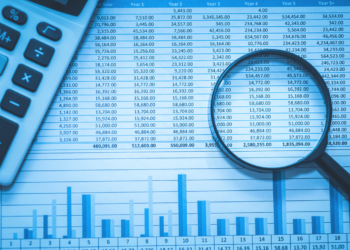Forensic accountants can play a role in ensuring that important financial facts are disclosed and that all relevant financial documents are obtained by the attorney; they can also translate complex financial information into more understandable terms for a lay trier of fact.
In hiring a forensic accountant you must first determine how you are going to utilize them on your case. In fact, an appearance of advocacy in inappropriate circumstances may even harm a client. The appearance of advocacy (whether for financial, personal or other reasons) deprives the expert’s opinion of the critical element of credibility and weakens the client’s case. However, in some client-CPA relationships, advocacy is ethical and provides a valuable contribution. The key is for an expert to understand his or her role in a particular case, and determine if acting as an advocate is appropriate. CPAs involved in litigation can be divided into three distinct groups:
• Testifying experts; • Consulting experts; and • Fact witnesses.
Testifying Experts The most common role for a CPA is as a testifying expert. In this role, the CPA appears before a trier of fact (e.g., a judge or jury) and may render their opinions by deposition or in court. A testifying expert’s opinions and reports are discoverable, usually in the form of deposition testimony prior to trial.
All CPAs, including testifying experts, must comply with Rule 102 of the AICPA Code of Professional Conduct. Rule 102 states “In the performance of any professional services, a member shall maintain objectivity and integrity, shall be free of conflicts of interest, and shall not knowingly misrepresent facts or subordinate his or her judgment to others.” If the expert believes no opinion can be rendered that will be helpful to the client, the expert should advise the attorney as soon as possible.
Consulting Experts Rule 102 also applies to the role of the consulting expert. However, it is acceptable for a consulting expert to advocate the client’s position. Consulting experts are not hired to provide an opinion to a trier of fact. Instead, they are typically engaged to give guidance to the attorney and testifying experts. The consulting expert provides recommendations for calculations, insights into industry standards and other assistance as necessary. Consulting experts usually are not discoverable. As a result, while testifying experts owe integrity and objectivity to both the client and the court, consulting experts only owe it to the client.
Fact Witnesses Accountants may also be called upon to provide testimony as fact witnesses. Fact witnesses are not expected to render expert opinions.
Typically, testifying and consulting expert forensic accountants provide pre-trial discovery support in some or all of the following areas:
Forensic Accounting 1. Pre-case analysis. Prior to acceptance, a discussion with a forensic accountant describing the case fact pattern, the specific law, and a review of the production, if any, to date, can be helpful in assessing the economic value and probability of success of a case before going forward.
- Preparation of a complete document production request. A forensic accountant is invaluable in assisting an attorney in customizing a request for production targeted at discovering the information necessary to determine both helpful and harmful facts to the case at hand.
- Aid in formulating interrogatory and deposition questions, and evaluating the significance of the responses and testimony respectively, provide reports and contribute to motions, pleadings and briefs. Financial evidence can be extremely technical and therefore the questions asked must be very specific in order to elicit a response that is helpful to the attorney. Due to the technical nature of a response, especially where accounting principles apply, the accountant can interpret the responses and advise the attorney as to their impact on the case.
- Script questions for opposing expert’s deposition and trial, and direct examination of the testifying expert for trial. Aft er interpreting the data accumulated in the case, the forensic accountant can assist in the development of questions for use at the opposing expert’s testimony, or for his own expert’s testimony in order to highlight important facts and highlight witnesses.
Incorporated in the specific areas discussed above, and depending on the type of case, the forensic accountant will collect and interpret the financial data obtained, analyze the relevant business records, evaluate a business or industry, and determine the impact of a proposed settlement and its tax consequences.










